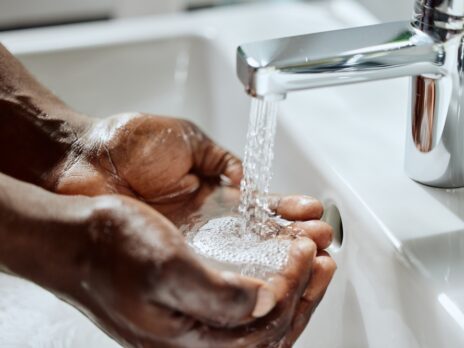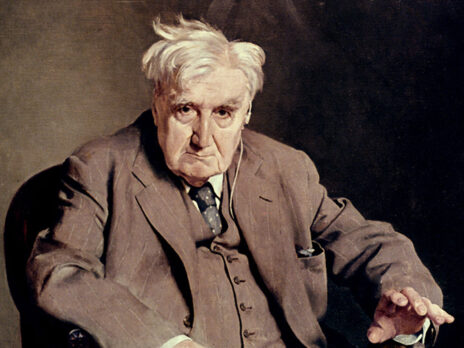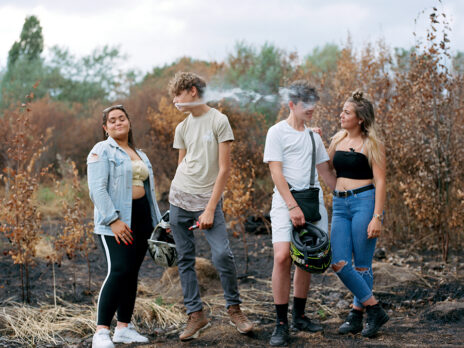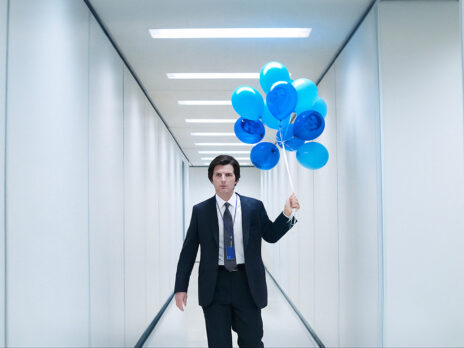
Bad Sisters: though it sounds like a particularly mean book by Roald Dahl, in fact it’s a hit TV show by Sharon Horgan, back for a second series. This time around, of course, it lacks Claes Bang – a lack indeed if, like me, your rule of life for the last few years has been that a girl can never have too much Claes Bang (the Danish actor played John Paul aka The Prick, the evil husband of Grace, who was dispatched in series one).
But this isn’t its only problem. The success of the first series, which was based on a 2012 Belgian TV show, was predicated more or less entirely on the fact that we wanted – we longed for – the five Garveys to get away with murder. Now they’ve returned, however, we understand immediately that they’re not, after all, going to be allowed to go scot free. Ghosts and guilt are abroad here, and as a result, the sisters’ rude, slightly mad ebullience is on the run – and with it, a great deal of the audience’s enjoyment.
But let’s back up a bit. When the new series begins, two years have passed since Grace (Anne-Marie Duff) was freed from John Paul’s tyranny. She’s now about to marry gorgeous, hairy Ian (Owen McDonnell). On her hen do at the races, though, Roger Muldoon (Michael Smiley), the one man who knows her dark, dark secret, shuffles into view on the arm of his sister, Angelica (Fiona Shaw). Obviously, we’re supposed inwardly to shiver at this point, but just in case we’re faffing with our phones and not fully paying attention, Eva (Sharon Horgan), the oldest Garvey sister (think of her as the Enforcer), clenches her jaw yet again. Taken by surprise, Grace invites Roger to the wedding, and when he turns up looking vaguely creepy – it’s a shame he’s starting to seem a bit stalker-ish – Angelica, predictably, is with him. Whom, we wonder, should the Garveys fear more? The Garda, or this smiling assassin who laughs out loud at the news that Eva has a menopause coach?
Angelica, it turns out, is living with Roger, and in their sitting room is one of those glorious improvised Catholic shrines: big, glossy picture of Jesus with plenty of thorns, and below it one of those little red electric candles that come on at the flick of a switch. If I tell you that my favourite moment of the series so far (I’ve seen two episodes) was when Angelica arrived home, and distractedly clicked on said candle before breaking the news to Roger that the Garda were all over John Paul’s old house (they’ve found a suitcase containing the dismembered body of his father, George, whom he bumped off for cash), you’ll have some sense of how little I’m enjoying Bad Sisters this time around. Somehow, Shaw – “I’m a woman of the church: I’m in the guilt industry” – is upstaging Horgan, even though her part has been cut from an old cardboard box with a pair of pinking shears. (religious types are always mean hypocrites, aren’t they?) This can’t be a good sign.
Where will the series go? Already, there has been a terrible car accident – I won’t say who was involved, in case you’re catching up – and along with the smell of petrol, I detected a slight whiff of desperation. There’s something frantic in the plotting; an over-loaded-ness that doesn’t quite come off. I find that I no longer fully believe in the Garveys. They seem less like sisters now than a group of women assembled to represent various personality types. I struggle to care about Ursula’s (Eva Birthistle) pill popping and Bibi’s (Sarah Greene) struggle to accept her wife’s decision to go the egg donor route. The fifth sister, Becka, played by Eve Hewson, just swears a lot and looks gorgeous in electric blue eye shadow.
They’re all terrified Roger will “unburden” himself to the police, but would her own sisters seriously suggest that Grace “give him leg over” to ensure his silence? Even this, though, doesn’t stretch credulity as much as the fact that when Ian disappears soon after his marriage, the other Garveys find themselves wondering if Grace has bumped him off, too. I keep wondering how any of them earn a living, given that they’re always together, cleaning non-existent blood stains off kitchen floors. In the end, though, it’s hard to feel surprised about any of this (though I am a bit indignant). The age of streaming makes it difficult – impossible, probably – for hit series to be one-offs, even those with endings that positively shout: that’s all folks! Think of it as the three-S rule: seduce (your writers and stars), squeeze and stretch (your plots). The reprise is everything, and the goodbye too long and drawn out.
[See also: The Day of the Jackal is more lifestyle show than thriller]





